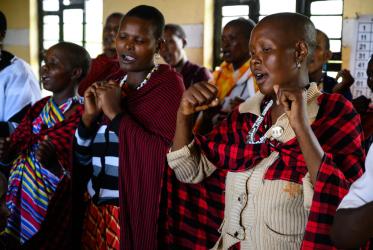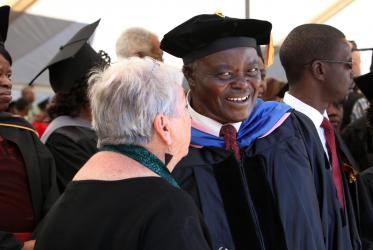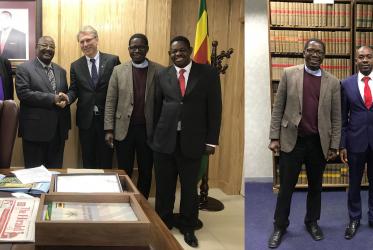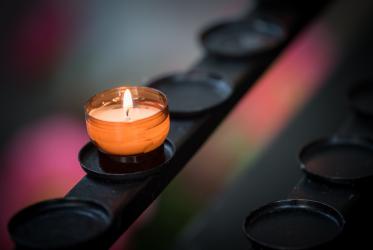Displaying 1 - 20 of 30
WCC remembers life of Patrick Matsikenyiri, a joyful song leader
15 February 2021
Young Africans are eager to grapple with challenges
09 January 2020
Rev. Kenneth Mtata reflects on journey of transition in Zimbabwe
20 September 2018
#WCC70: Fellowship of women and men – with ups and downs
17 August 2018
#WCC70: Kirchen als „Vermittler von Freiheit“
12 February 2018
#WCC70: Churches as “freedom agents”
12 February 2018
ÖRK-Exekutivausschuss kommentiert Situation in Simbabwe
22 November 2017











